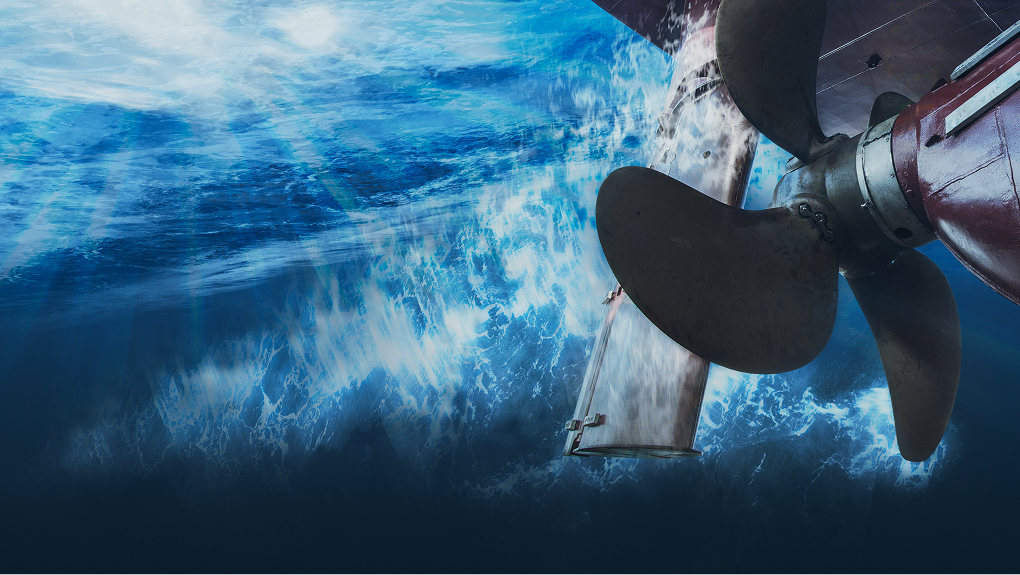“I’d recommend them to anyone working offshore. They fought hard and got me a settlement that helped cover my medical bills and lost wages.”



The allure of the Gulf Coast’s waters draws countless individuals for work and recreation. However, beneath the surface lies a hidden danger: boat propellers. These sharp, powerful blades can cause unspeakable damage in mere seconds, transforming a day on the water into a life-altering tragedy. If you or a loved one has suffered a severe injury in a boat propeller accident, whether as a passenger, swimmer, or maritime worker, you need immediate and experienced legal guidance. At our firm, our maritime injury lawyers are dedicated to fighting for victims of these devastating incidents, ensuring they receive the full compensation needed for their extensive recovery.
Boat propeller accidents are among the most horrific incidents on the water, often resulting in injuries that require extensive medical treatment, multiple surgeries, and long-term rehabilitation.
Propeller accidents often happen unexpectedly and can occur in various scenarios:
The razor-sharp blades of a propeller can cause deep lacerations, crush injuries, and traumatic amputations. Common injuries include:
Determining who is at fault in a boat propeller accident can be complex. Multiple parties may share liability, depending on the circumstances.
The most common cause of propeller accidents is the negligence of the boat operator. This can include:
In some cases, the accident may be caused or worsened by a defect in the boat or its components, including the propeller itself, the engine, or safety equipment like kill switches.
Manufacturers can be held liable if their product was:
The owner of the vessel may be liable if they knowingly allowed an unqualified or intoxicated person to operate the boat, or if they failed to properly maintain the vessel. For commercial vessels, the employer has a duty to provide a safe work environment, and negligence in this duty can lead to liability for worker injuries.
Boat propeller accidents often fall under federal maritime law, a complex body of law that differs significantly from state personal injury laws.
Whether your case falls under federal maritime law or state law depends on factors like where the accident occurred (navigable waters vs. non-navigable) and the nature of the vessel (recreational vs. commercial). An experienced maritime attorney can determine the applicable laws for your specific situation.
If you were injured by a boat propeller while working as a crew member on a commercial vessel (e.g., fishing boat, tugboat, research vessel, commercial passenger boat), you may be considered a “seaman” and protected under the Jones Act. This federal law allows you to sue your employer for negligence that contributed to your injury. It also entitles you to “maintenance and cure” benefits for living expenses and medical care during your recovery.
For passengers on recreational boats, swimmers, or divers, claims often fall under general maritime law for negligence or unseaworthiness. This allows injured parties to seek compensation from the responsible boat operator, owner, or other negligent parties.
The aftermath of a boat propeller accident is devastating, and the legal process is complex. You need a dedicated legal team to fight for your rights.
Our firm will conduct a thorough investigation, which includes:
We work meticulously to ensure all your damages are fully accounted for. This includes not only immediate medical bills but also:
Insurance companies for boat owners and manufacturers will often try to minimize their payouts. Our attorneys are skilled negotiators and tenacious litigators who will fiercely advocate on your behalf to secure the maximum compensation you deserve, either through settlement or by taking your case to court.
Seek immediate emergency medical attention for any injuries. Ensure the accident is reported to the appropriate authorities (e.g., U.S. Coast Guard, local marine patrol). If safe, document the scene with photos/videos. Do not make statements to insurance companies or admit fault without first speaking to an attorney.
Yes, maritime personal injury claims generally have a three-year statute of limitations. However, depending on the specific circumstances and parties involved, shorter deadlines might apply. It is crucial to contact a maritime attorney as soon as possible.
Potentially. Boat owners have a responsibility to ensure their vessel is safe and operated by competent individuals. If the owner lent the boat to an inexperienced or intoxicated person, or if the accident was due to a lack of maintenance, they could be held liable.
Swimmers and divers have rights. If the boat operator failed to maintain a proper lookout, operated recklessly, or ignored “diver down” flags, they can be held liable for your injuries.
The value of your case depends on many factors, including the severity of your injuries, medical expenses, lost wages, pain and suffering, and how the injury impacts your future quality of life. An experienced attorney can provide a comprehensive evaluation.
A boat propeller accident can leave victims with life-altering injuries and immense challenges. You deserve compassionate and aggressive legal representation to help you navigate the complex legal waters and secure the compensation necessary for your recovery and future. At our firm, our Gulf Coast Boat Propeller Accident Lawyers are ready to stand by your side, leveraging our deep knowledge of maritime law to hold negligent parties accountable.
